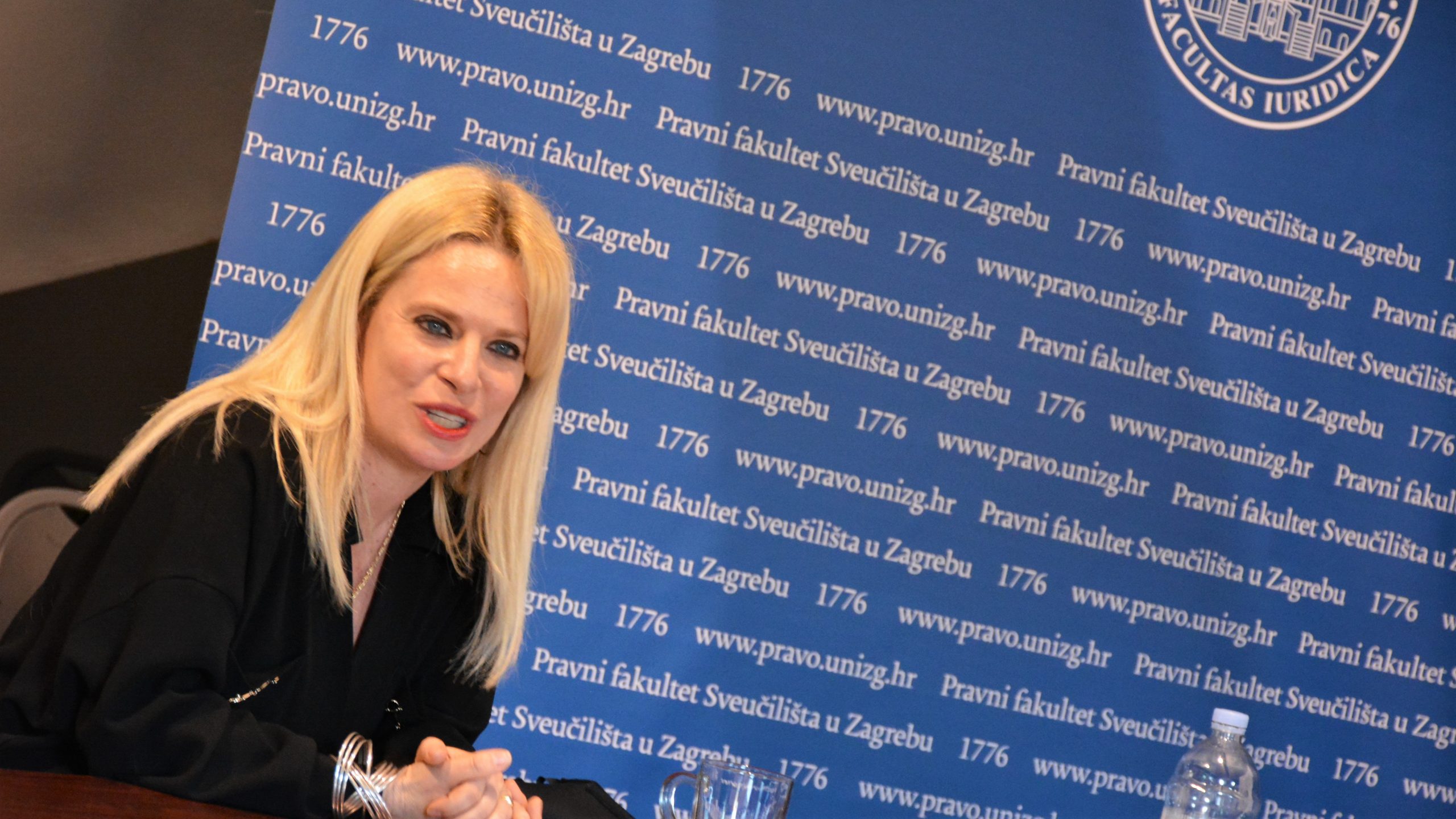Assoc.prof.dr.sc.Dr.h.c. Sunčana Roksandić, is an tenure-track associate professor at the Department of Criminal Law, Faculty of Law, University of Zagreb, serving as the Head of Department(since 2023). In addition to being the (co)holder of the course Criminal Law, she is the holder of the courses Economic Criminal Law, Transitional Justice, and co-holder of the courses EU Substantive Criminal Law and the Protection of Victims, Bioethics and Human Rights, Medicine and law, Law and movies. As a scholarship holder and doctoral candidate of the Criminology Department of the Max Planck Institute for Foreign and International Criminal Law in Freiburg (2012-2016 now Max Planck Institute for Study of Crime, Security and Law), she completed a doctoral study in criminal law at her home faculty (2015) and a doctoral study at the Albert-Ludwig University of Freiburg (2016) defending the dissertation as an international double doctorate (Cotutelle de thèse) with the grade summa cum laude (Prosecuting serious economic crimes as international crimes: https://www.duncker-humblot.de/en/buch/prosecuting-serious-economic-crimes-as-international-crimes-9783428151998/?page_id=0). She is a certified mediator since 2022.
She is a recipient of the 2023 Reward: the Rule of Law & Anti-Corruption Centre, in support of the United Nations Office on Drugs and Crime, The Sheik Tamim Bin Hamad Al Thani International Anti-Corruption Excellence Award in the category of: Academic Research and Education.
She has obtained her master’s degree in law at the Faculty of Law in Zagreb, where she also completed her post-graduate scientific studies in the field of commercial law and company law. She completed her high school education in the USA (after 3 years of Classical Gymnasium in Zagreb). Before joining the Faculty of Law in 2007, she worked in practice for 7 years, where she passed the bar exam (2002). She is the recipient of a scholarship for postdoctoral research from the Marija and Mirjan Damaška Foundation (2019/2020).
She received an honorary doctorate (doctor honoris causa) from the East European University in Tbilisi, Georgia for her research and activities related to “the responsibility of transnational corporations and other business enterprises for breaches of human rights” in 2019. She is also the winner of the annual award of the Association of University Teachers and other Scientists of the University of Zagreb for the best young scientist in the field of social sciences in 2011, and the Certificate of Appreciation of the Center for Forensic Examinations, Research and Expertise “Ivan Vučetić” for an exceptional contribution to scientific cooperation aimed at combating crime in 2023. She was an external member of the Committee for Legislation of the Croatian Parliament (2021-2024) and the president of the Commission for the Protection of Persons with Mental Disabilities at the Ministry of Justice and the President of the Council for the Implementation of the Code of Conduct of State Officials in Executive Authorities (both since 2023).
She participated as a member of several Working groups in the Ministry of Justice in passing laws and amending laws (Criminal Code, Law on the Protection of Persons with Mental Disabilities). She is a researcher and expert in international, European and national scientific and professional projects, including Croatian Science Foundation (e.g. EU, CoE, UNODC, UNDP, Max Planck Institute for Foreign and International Criminal Law (now MPI for the Study of Crime, Security and Law), Global Initiative Against Transnational Organized Crime, DCAF) primarily in the field of corruption crimes, political-economic crimes, protection of economic, social and cultural rights through criminal. She has been involved in the work of the legal clinic at the Faculty of Law University of Zagreb since its establishment, and as part of it, she drafted the first Draft Proposal of the Law on Compensation for Victims of Sexual Violence in the Homeland War and the Draft Proposal of the Law on Compensation for People who became infected with HIV before the introduction of mandatory testing for blood donors.
In 2018, she received the UNODC E4J (Education for Justice) Championship award, and in 2015 she was selected for the IVLP (International Visitor Leadership Program) by the State Department, USA (Women countering extremism). She created the first draft of the UNODC Anti-Corruption Education Module 11: Peace, Security, Corruption and participated in the Working Group of the Croatian Academy of Sciences and Arts that created a proposal for the Ethical Principles of Applied Genomics in Croatia. She was an invited keynote speaker at the International Criminal Court State Party Side Conference: Prosecuting Serious Economic Crimes as International Crimes-A New Mandate for the ICC. She participated as a visiting professor at Universities in China, Russia, Georgia, Sweden, Kosovo (including online). Among the most recent publications is: Beyond Classic Core Crimes: International Criminal Law for the Protection of Mankind—Economic and Environmental Crimes as International Crimes 2021 Global Community Yearbook of International Law and Jurisprudence / Ziccardi, Capaldo (ed.), Oxford: Oxford University Press, 2022 and expert analyzes of anti-corruption measures of the Western Balkan countries: Organized Coruption: (GI, 2023: https://globalinitiative.net/analysis/organized-corruption-political-financing-western-balkans/).
She is a member of the GONG Council and a member of ICC Croatia for the fight against corruption, as well as a member of the Miko Tripalo Center. She was the leader of the Jean Monnet project of the advanced seminar in EU criminal law and policy (2016-2019) and the co-founder and co-director of the international course of the same name, which is held every year at the Interuniversity Center in Dubrovnik.
Her publications (in Croatian, English and German) and presentations at national, regional and international conferences, meetings and invited lectures at universities and institutes are available online: https://www.bib.irb.hr/pregled/profil/24105 ; https://scholar.google.hr/citations?user=QiWvs64AAAAJ&hl=en. Google scholar citation: 783.




